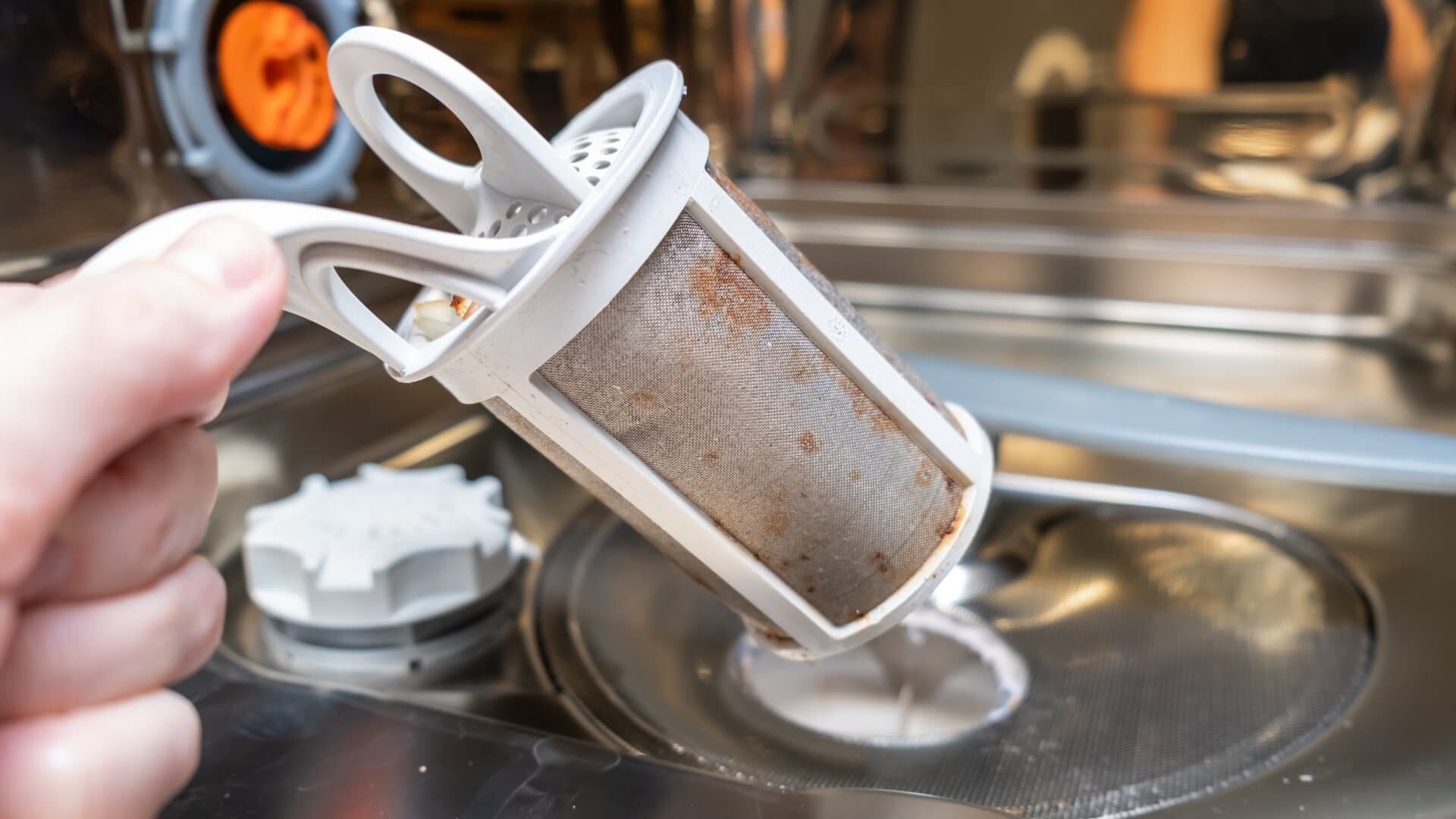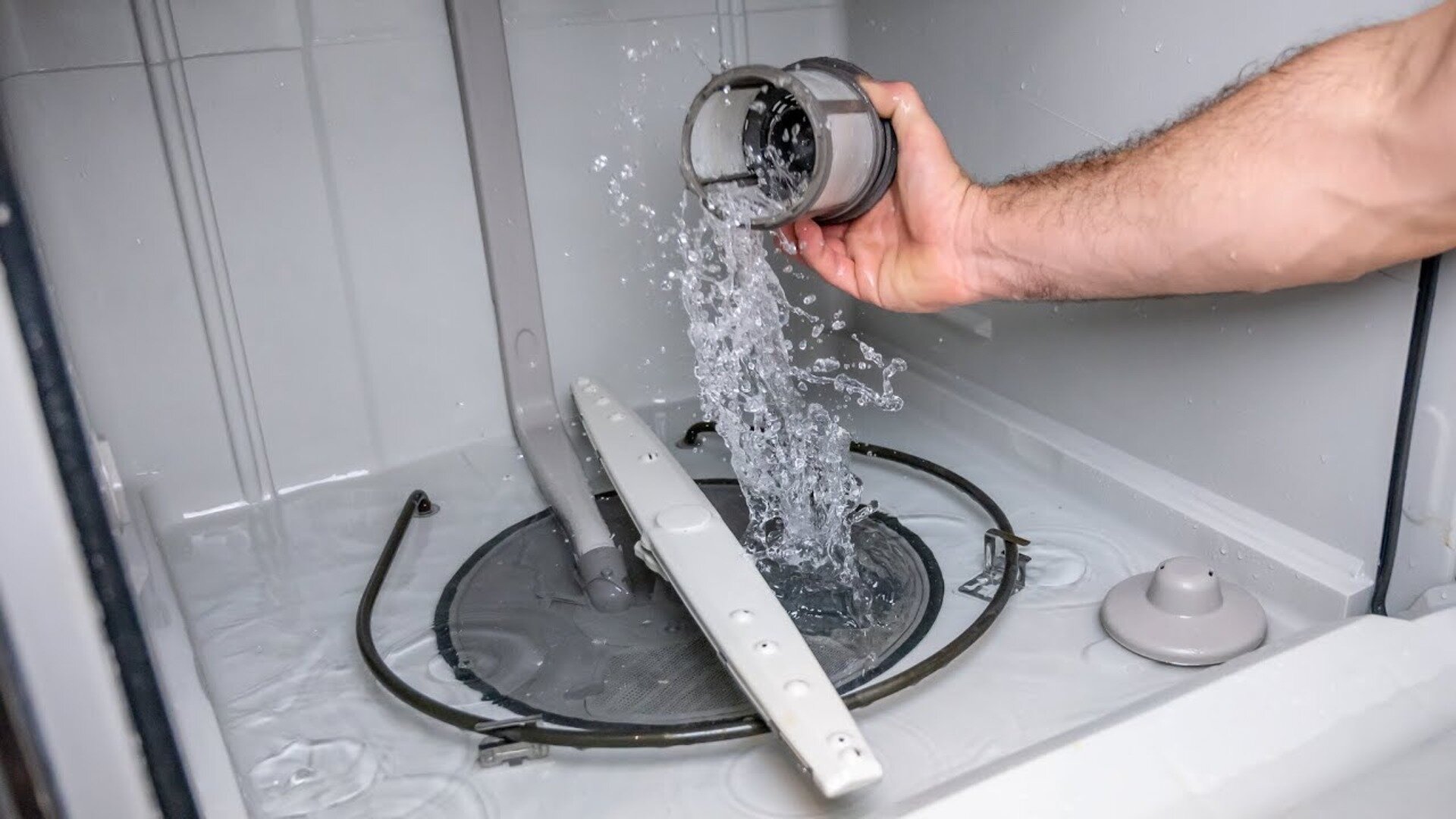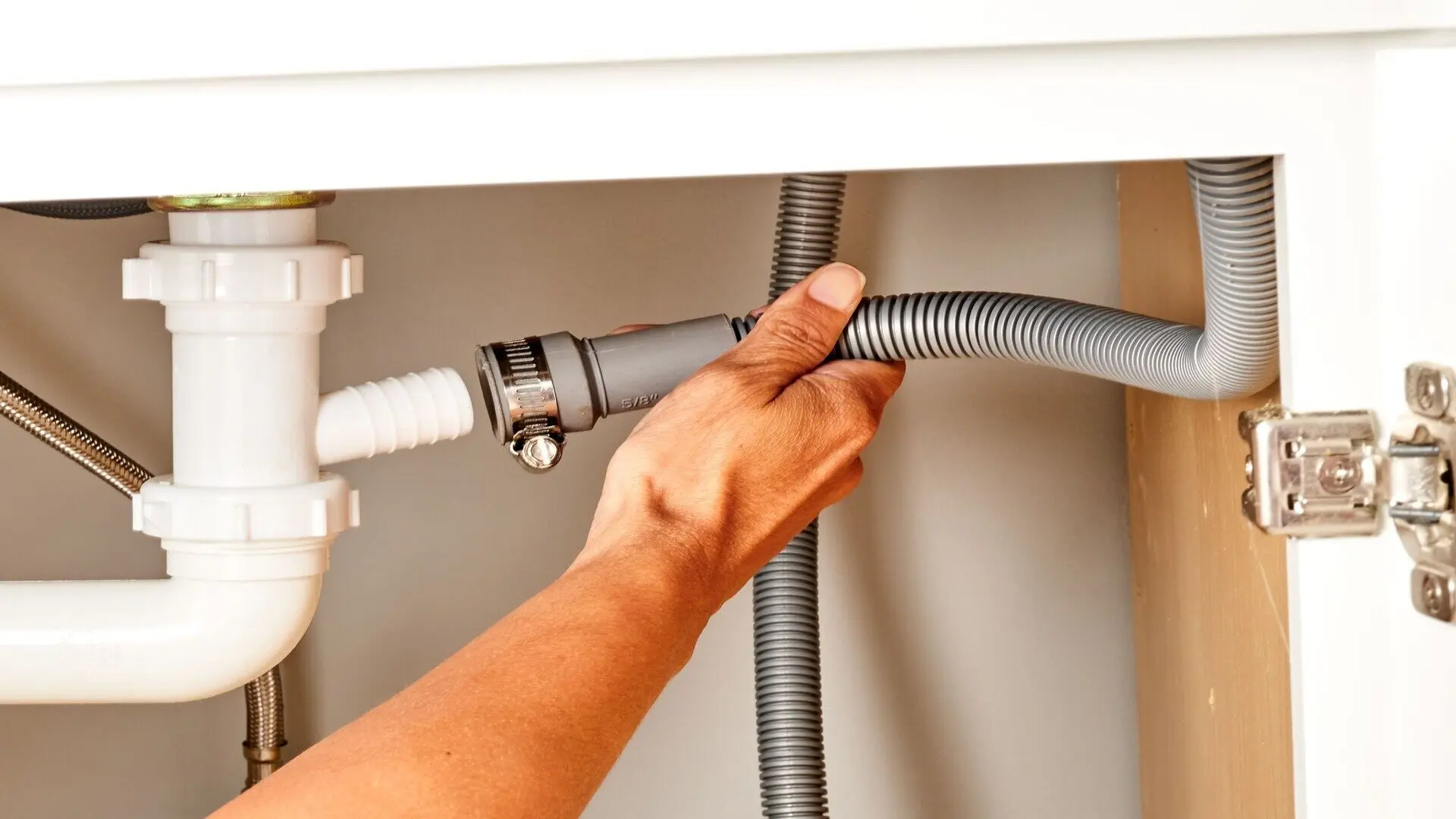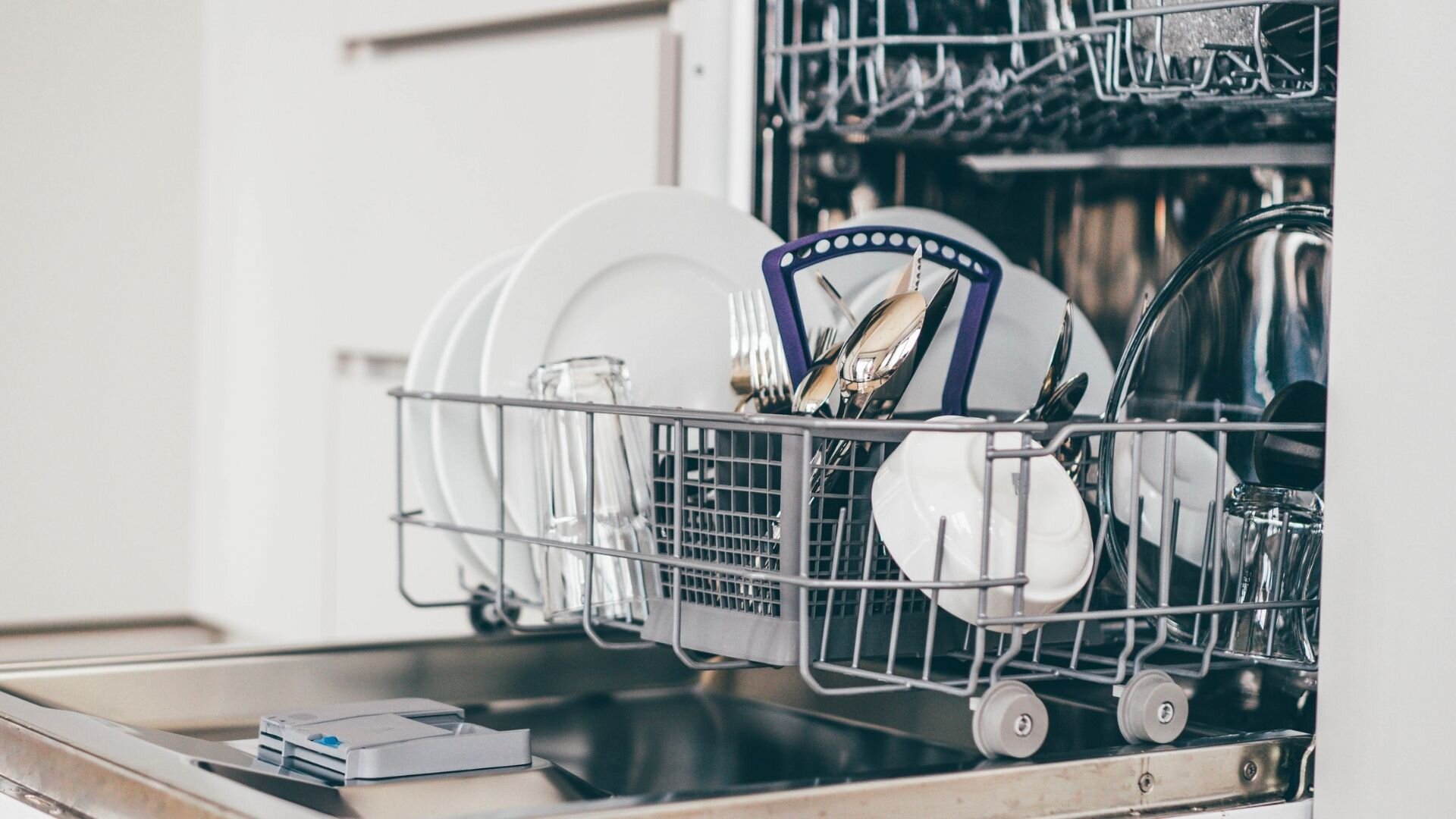
Picture this: Dinner’s done, and it’s time for the dishwasher to tackle the dishes. You hit start, feeling relieved, but not knowing what’s brewing underneath—a blocked drain threatening to spoil your peace.
Suddenly, there’s water sitting there, refusing to go down, and a not-so-pleasant smell rising from the dishwasher. It’s enough to test anyone’s patience. But don’t worry!
In this blog post, we delve into the causes of dishwasher drain blockages and provide practical solutions to keep your dishwasher running smoothly. Discover the secrets to maintaining a clear and efficient drain, bidding farewell to the hassle of blockages, and ensuring your dishwasher remains a reliable kitchen companion.
Common Causes of Dishwasher Drain Blockages
Understanding the common causes of dishwasher drain blockages is crucial for maintaining the optimal performance of your beloved kitchen appliance. When your drain becomes clogged, it can lead to slow drainage, standing water, and unpleasant odours. In this section, we will explore six common causes of dishwasher drain blockages and shed light on how they can impact the functionality of your dishwasher.
Food debris and residue
One of the primary culprits behind drain blockages is food debris and residue. Despite the dishwasher’s ability to handle food remnants, small particles can accumulate over time and find their way into the drain. These bits of food can accumulate and form clogs, hindering water flow and causing drainage issues.
Grease and fat buildup
Grease and fat from dishes and cookware can present a significant challenge for a dishwasher drain. As these substances cool and solidify, they can adhere to and obstruct the drain walls. Over time, the accumulation of grease and fat can impede water flow, leading to slow drainage or complete blockage.
Mineral deposits
If you live in an area with hard water, mineral deposits can wreak havoc on your drain. Hard water contains high levels of minerals such as calcium and magnesium, which can precipitate and accumulate as deposits in the drain. As these deposits build up, they restrict the flow of water, causing drainage problems and reducing the efficiency of your dishwasher.

Broken or damaged components
Sometimes, the cause of a drain blockage lies within the dishwasher itself. Broken or damaged components like the drain hose or the dishwasher filter can contribute to blockages.
A misaligned dishwasher drain hose or a clogged or worn-out filter can impede the proper flow of water, leading to drainage issues. If you don’t have an air gap up by the kitchen sink, your dishwasher drain hose goes directly into your garbage disposal oryour kitchen sink drain.
Improper loading
The way you load your dishwasher can also play a role in drain blockages. Placing large food particles or objects that don’t belong in the dishwasher, such as bottle caps or utensils, can inadvertently lead to a blockage. These items may find their way into the drain and cause an obstruction, preventing water from flowing freely.
Insufficient cleaning and maintenance
Refrain from regular cleaning and maintenance of your dishwasher can gradually contribute to drain blockages. Over time, a neglected dishwasher can accumulate food remnants, grease, and mineral deposits, clogging the drain. Regular cleaning of the dishwasher filter, removing debris from the drain area, and descaling to eliminate mineral buildup are essential to prevent blockages.
Knowing what typically causes these blockages helps you keep your drain running smoothly. We’ll next look at the signs of a clogged dishwasher drain and share handy tips to stop these issues before they start.
Signs of a Blocked Dishwasher Drain
Spotting the signs of a blocked dishwasher drain early can save you a lot of hassle down the track. A blocked drain can lead to standing water, slow drainage, and those nasty smells. Here, we’ll talk about six telltale signs to watch out for.
Slow drainage
Most, but not all, dishwashers have a drain valve that keeps water from draining back into the dishwasher. One of the first signs of a blocked dishwasher drain is slow drainage. If water takes longer than usual to drain from your dishwasher after a cycle, it may indicate a partial or complete blockage in the drain system. Pay attention to any prolonged gurgling or bubbling sounds coming from the drain area, as these can also indicate poor drainage.
Standing water
If you see water pooled at the bottom after a cycle, chances are your dishwasher’s blocked. Water that doesn’t drain leaves your dishes sitting in what they just washed off, which isn’t great for hygiene—or smell.
Unpleasant odours
A blocked dishwasher drain can create a breeding ground for bacteria, food particles, and standing water, resulting in foul odours emanating from your dishwasher. These odours can be particularly noticeable when you open the dishwasher door or during the washing cycle. If you detect persistent unpleasant smells, it is a strong indication of a blocked drain that requires attention.
Water backup in the sink
A blocked dishwasher drain often causes water to bubble up into the sink. As the dishwasher tries to empty, the blockage makes the water reverse its path. So if your sink’s filling up while the dishwasher runs, you’re likely dealing with an obstruction.
Overflowing dishwasher
In severe cases of drain blockage, the dishwasher may overflow during a cycle. As water cannot escape through the drain, it fills the dishwasher and spills onto the floor. This situation can cause significant damage to your kitchen and surrounding areas. If you experience an overflowing dishwasher, it is vital to address the blockage immediately to prevent further damage.
Recurring blockages
If you frequently deal with dishwasher drain blockages, it may indicate an underlying issue that requires attention. While occasional blockages can occur due to various factors, such as food debris or mineral deposits, persistent and recurring blockages may suggest a more significant problem, such as a damaged component or an incorrect installation. In such cases, seeking professional assistance to diagnose and resolve the root cause is advisable.
Preventive Measures
It is essential to implement proactive preventive measures to prevent dishwasher drain blockages and keep it running smoothly. Here’s how to unclog your dishwasher and prevent a blockage from occurring.
Start by getting rid of extra food bits from your dishes before they go into the dishwasher; it’s a simple way to prevent hefty food particles from clogging up the works.

Additionally, rinsing dishes with hot water before placing them in the dishwasher can help remove grease and food residue. Regular cleaning and maintenance are also crucial. Clean the dishwasher filters regularly to prevent clogs, remove any visible debris from the drain area, and inspect the drain line for any signs of damage or misalignment. Descale your dishwasher periodically if you have hard water to prevent mineral deposits from accumulating.
By incorporating these preventive measures into your dishwasher routine, you can minimise the risk of dishwasher clogs and maintain optimal dishwasher performance. Ensuring the sink’s air gap is clear, and the dishwasher outlet hose is unobstructed can also help prevent issues with the drain pump and ensure proper drainage.
Dishwasher Not Draining Properly: How to Unclog a Dishwasher
If your dishwasher won’t drain, you can probably fix it yourself. When faced with a blocked dishwasher drain, there are several solutions you can try to restore proper drainage. Manual unclogging involves using tools like a plunger or a straightened wire hanger to remove debris and food particles from the drain. Another effective method is the baking soda and vinegar solution.
Start by pouring a cup of vinegar into the standing water at the bottom of your dishwasher and letting it sit for about 20 minutes. Then, sprinkle baking soda over the drain and pour another cup of vinegar. The resulting chemical reaction helps dissolve blockages and eliminate odours.

Allow the mixture to work for another 15-20 minutes before running a hot water cycle to flush the drain. It’s important to exercise caution when using chemical drain cleaners, as they can be harsh and potentially damage your dishwasher.
If manual methods and natural solutions do not resolve the issue, or if you suspect a more significant problem, it is advisable to seek professional assistance from a qualified plumber or appliance repair technician. They can diagnose the cause of the blockage and provide appropriate solutions to ensure your dishwasher’s proper functioning.
Say Goodbye to Dishwasher Drain Blockages!
Understanding the causes of dishwasher drain blockages and having effective solutions at hand can save you from the frustration and inconvenience of a malfunctioning dishwasher. By being aware of common culprits like food debris, grease buildup, and mineral deposits, you can take preventive measures to keep your dishwasher drain clear.
Regular cleaning, proper loading techniques, and maintenance are vital in preventing blockages. However, if you face persistent drain issues or need professional assistance, contact the experts at Fixed Today.
Our skilled technicians can diagnose the problem, offer tailored solutions, and make sure your dishwasher returns to its optimal performance. Remember, a clear and efficient dishwasher drain creates a happier and more convenient kitchen experience. Contact Fixed Today and let us help you enjoy the convenience of a fully functional dishwasher.














